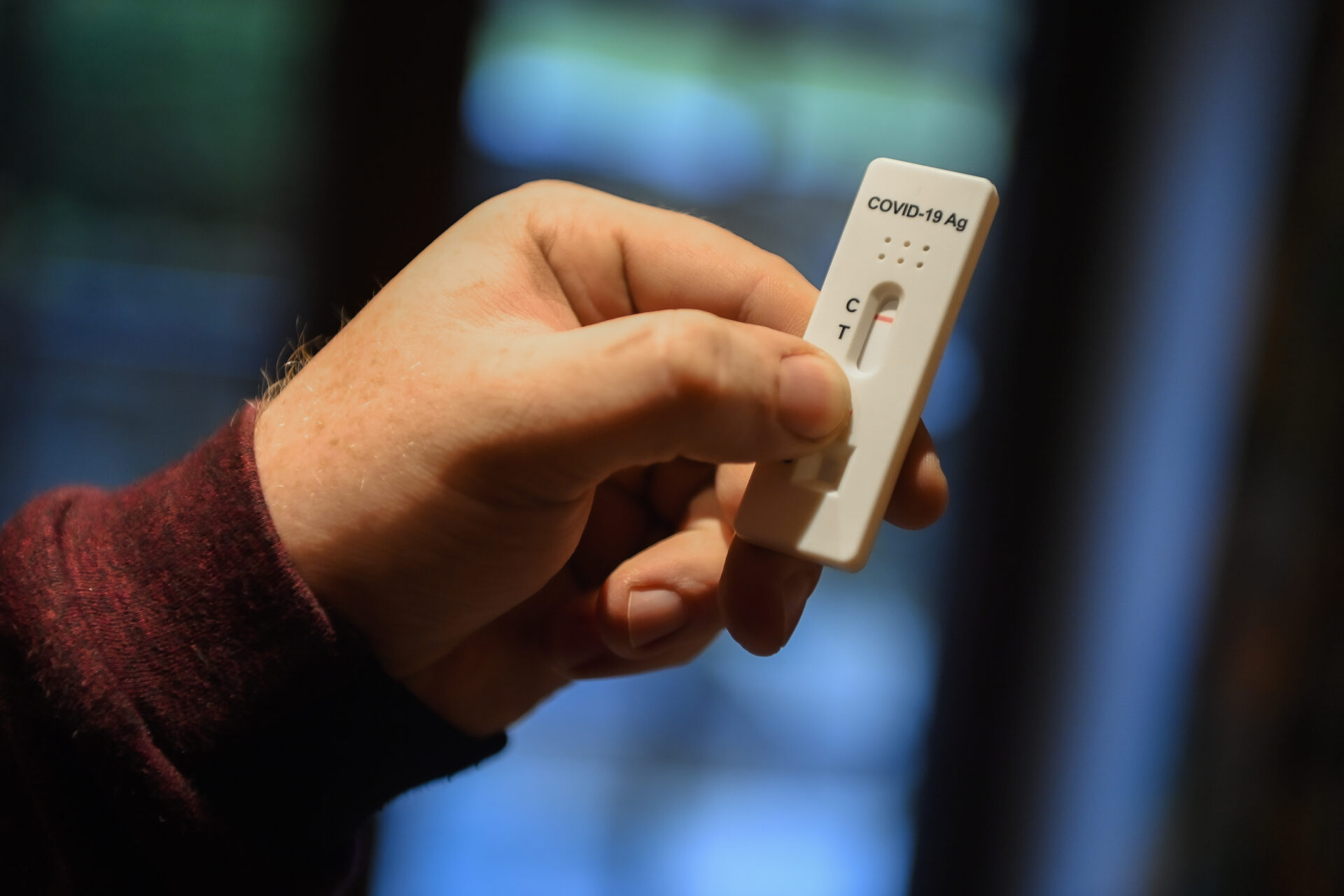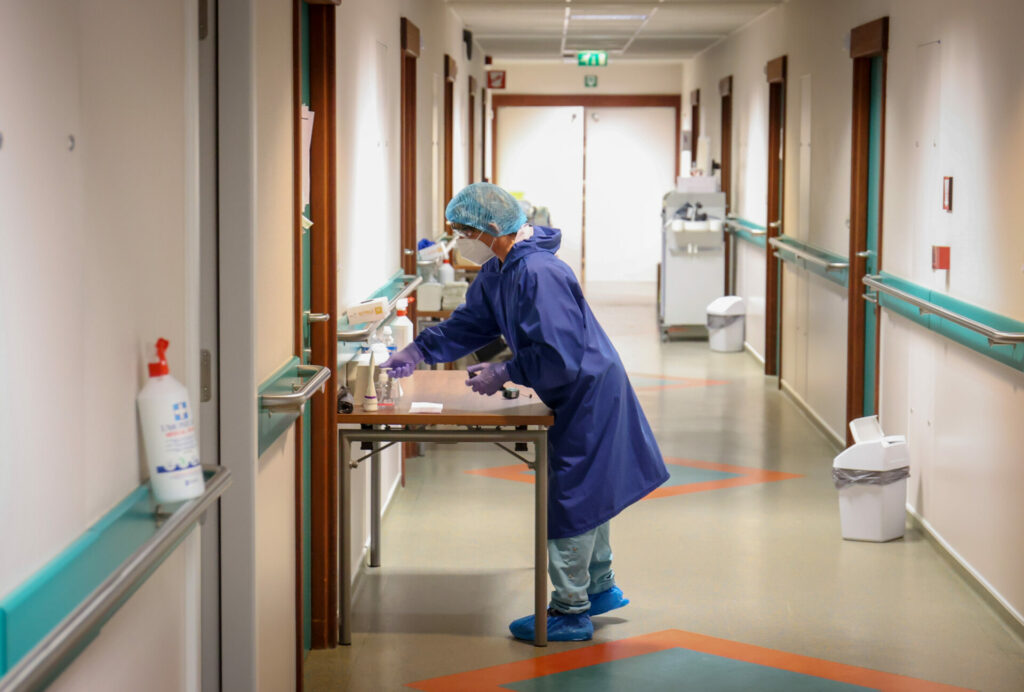After the average number of daily Covid-19 infections dropped to the lowest level since July 2021 last Friday, the continued improvement of the health situation is also being mirrored in Belgian hospitals.
An average of 48.4 patients suffering from Covid-19 were admitted to hospitals each day, down by 28% since last week, figures published by the Sciensano Institute of Public Health on Tuesday showed. This figure only includes the number of people hospitalised because of the virus.
Meanwhile, the total number of people infected with the virus in Belgian hospitals has also dropped, to 841 – around 400 less than this time last week. The number of patients being treated in intensive care is at 61.
This figure includes people who were administered for another reason and later contracted the virus.
Cases, tests and deaths
Between 29 October and 4 November, the average number of new Covid-19 infections recorded per day was 650 (-45%), down from 929 on Tuesday last week.
The average number of tests taken per day decreased by 1,600 from Tuesday last week to 5,400 per day, while the positivity rate has fallen to 14% down from more than 20% last week. This means slightly more than one in eight tests has a positive result.

A person shows his negative result. Credit: Belga/ Laurie Dieffembacq
Omicron BA.5 remains the dominant strain, accounting for 89.7% of all infections. It is said to be no more infectious than the other Omicron subvariants and can circumvent accumulated immunity.
In the same week, an average of 4.7 deaths as a result of a Covid-19 infection was recorded (-34%). The total number of deaths in Belgium since the start of the pandemic is 32,959; however, this includes people who died of another cause but who were infected, meaning it is an overestimate of Covid-19 deaths.
Vaccination
The reproduction rate has slightly risen to 0.83. When this figure is below 1, it means that the epidemic is slowing down. The incidence (the number of new cases per 100,000 inhabitants) has dropped to 111 over the past 14 days, down from 153 last Friday.
As of Saturday, more than 7.22 million people received a first booster dose of the vaccine, representing 76% of over-18s and 62% of the entire population, while almost 3.68 million people have received a second booster dose – equivalent to 40% of over-18s and 32% of the total population.
Related News
- Covid-19: Moderna faces shortages, falling demand
- Half of Belgian employees worked while sick last year
Adults across all regions in Belgium can now get their additional booster shots (without invitation in Wallonia and Brussels). Find out why this latest jab is important.

